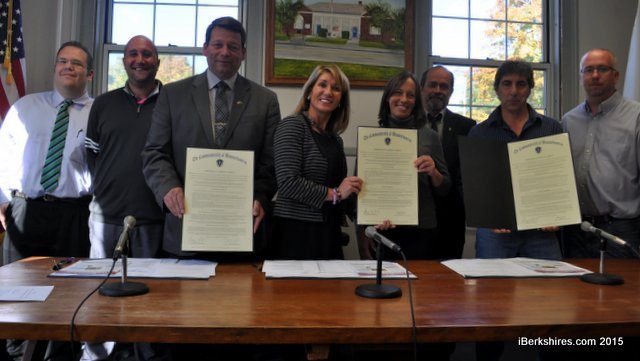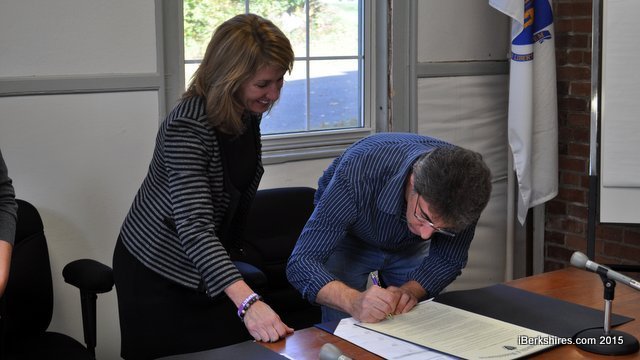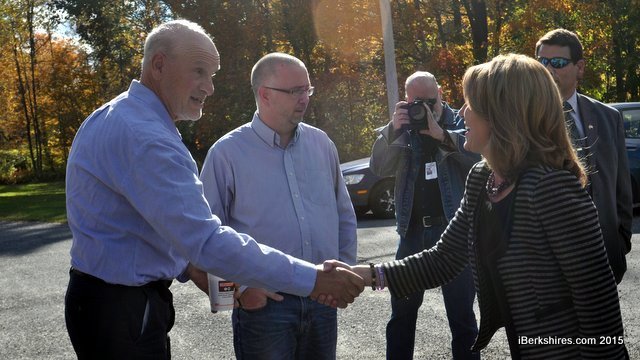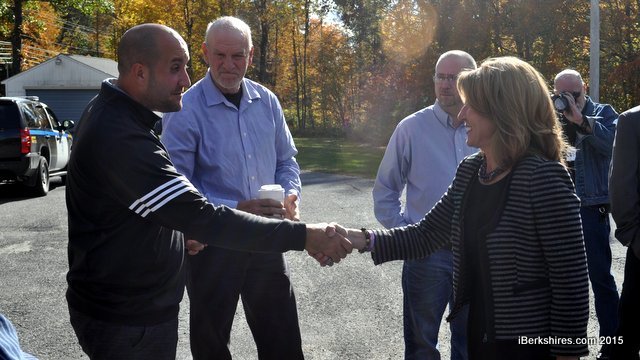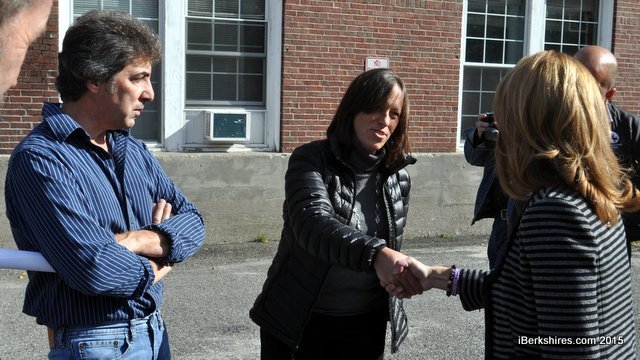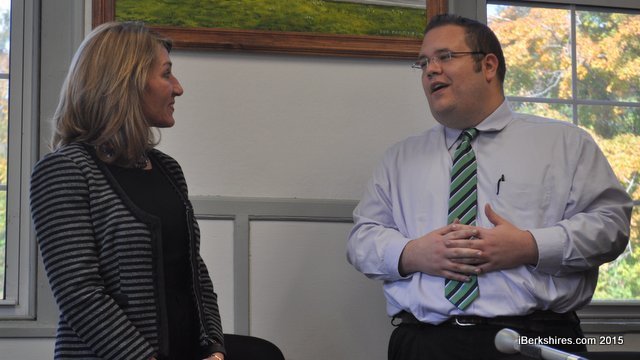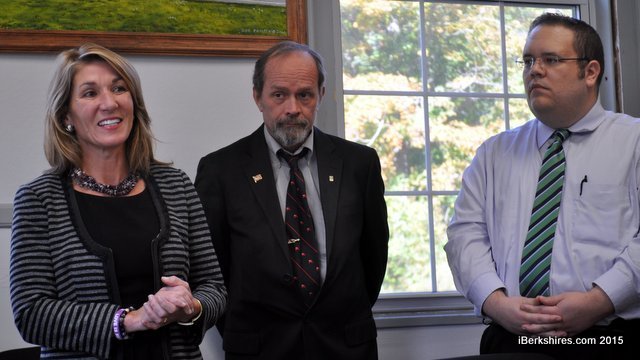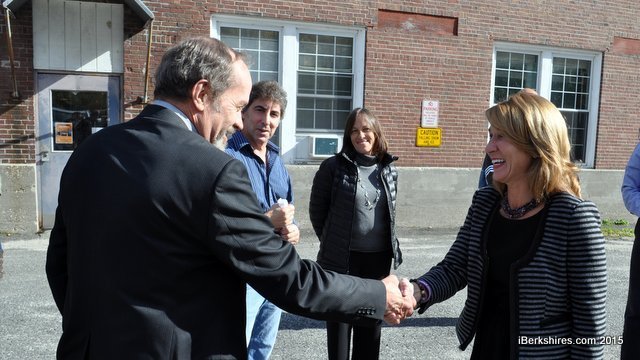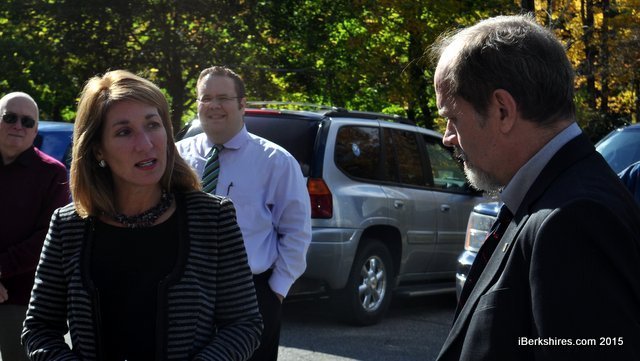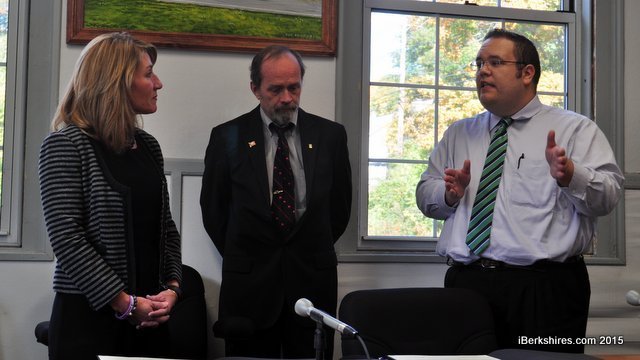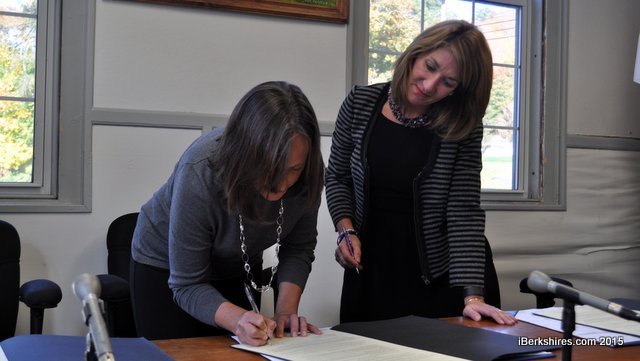Polito Signs Community Compact With Clarksburg, Adams, Charlemont
|
The towns signed the agreements in Clarksburg on Thursday. |
CLARKSBURG, Mass. – Lt. Gov. Karyn Polito met with town officials from Clarksburg, Adams, and Charlemont to sign Community Compact agreements between the state and the towns.
Selectmen and Town Administrators from Clarksburg, Adams, and Charlemont met with Polito at Clarksburg town hall Thursday to sign the agreement which allows towns and cities throughout the Commonwealth to take advantage of state services and assistance to complete agreed upon best practices.
“We just really want to make this state, from one end to the other, great and better,” Polito said.
“We do that through strengthening communities from one end to the other. Not form the top down, but form a grassroots, bottom up approach. We give you the tools and resources to better prepare you for success.”
Polito said the program was implemented after hearing from many communities throughout the state who were in need of a stronger partnership with the state. She added rural and smaller communities often run much leaner operations because they do not have the resources the bigger cities have.
Clarksburg Town Administrator Carl McKinney said the town will focus on using state resources to make their town hall, built in 1938, more energy efficient.
“This building is tired and it needs help in a lot of ways and it has always been last in line for any meaningful repairs and renovations,” McKinney said. “We feel we are bleeding energy dollars through these crevices and some of them can blow out a candle if you stand near them.”
He said the building is in need of façade work, insulation, and efficient windows and doors.
“Our goal is we need to get our energy costs under control because our budget is such that the more we can squeeze out of the energy component, then the more we have for other services,” he said.
Polito said the state will provide the town with a Department of Energy Resources audit, technical assistance, and funds to assess the building so they can develop an efficiency plan.
Adams Town Administrator Tony Mazzucco said Adams has agreed to work with the state to further efforts to strengthen their education system through regionalization and shared services.
“We want to make sure the Commonwealth continues to lead the nation in education, but we have to find a way to make it sustainable,” Mazzucco said.
Mazzucco added that the town’s most important project is the continued development of the Greylock Glen, which already exemplifies a successful working relationship with the state.
“It is a great example of a relationship between the state and the town and not jut grant money going from one to the other but a true partnership,” he said.
Charlemont Board of Selectmen Chairwoman Beth Bandy said her town is rapidly growing and is in need of a long-range plan to address infrastructure needs.
"We have a lot of needs that we need to address that are going to cost a lot of money at some point, but we don't really have an overview of what we are really going to need over time," Bandy said.
Polito said the state will help develop a plan and if they cannot they will fund the development of a plan with the Collins Center for Public Management out of the University of Massachusetts at Boston.
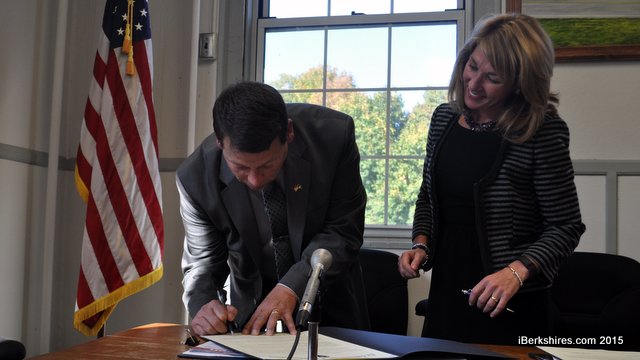 |
Polito said the state does not mandate the program and currently about have of the communities in Massachusetts have entered the program. Clarksburg, Adams, and Charlemont were the 39th, 40th, and 41st to sign.
“We know as former selectmen that unfunded mandates are not a friend of ours, and we wanted to make this a voluntary program and a funded program,” she said. “It’s self-driven and you as a community pull your team together and think about where you are at and where you want to be.”
She added that municipalities that enter the program receive “bonus points” that are calculated into state wide grants putting the involved towns in a more competitive position.
Town officials thanked Polito for making the visit and strengthening their relationship with the Baker Polito administration.
“When I drive though these communities and I meet you I get a sense of how great this state really is,” Polito said. “There are some places that need more opportunity, and we want to make sure that no matter where you live you have it.”

